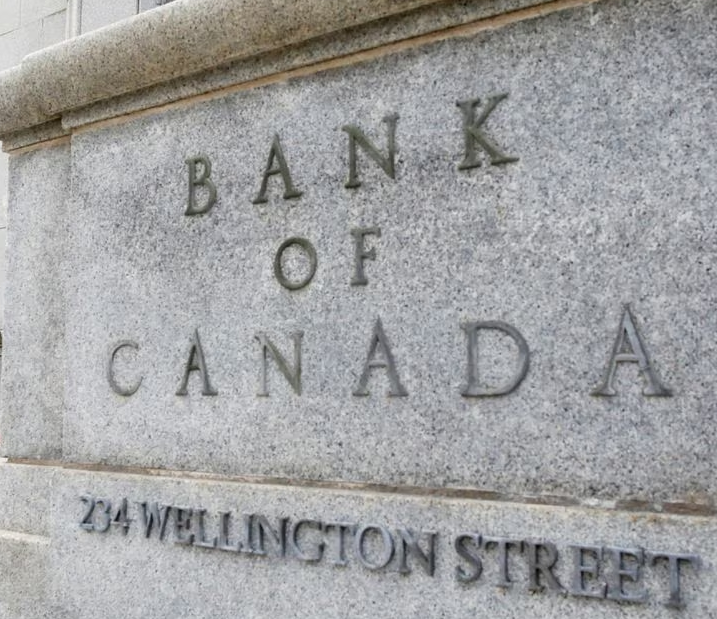Refinance Insured Mortgages to Create Secondary Suites
(October 10, 2024) Canadians who have a high-ratio insured mortgage will soon be able to refinance to borrow more in order to build a secondary suite. Insured mortgages have helped many Canadians enter the housing market with less than 20% down, but refinancing has not been allowed without losing the insured status and forfeiting the premium paid for the insured mortgage. The insured status is valuable as it often allows lower mortgage rates. Program parameters include:
Borrower(s) must already own the property.
The borrower or a close relative are occupying one of the current units;
Borrower(s) must intend to construct additional units; and,
The additional unit(s) must not be used as a short-term rental.
New units must be legal and fully self-contained units (e.g., basement suites with separate entrances, laneway homes) and meet municipal zoning requirements.
Maximum of four dwelling units including the existing unit.
The maximum value of the residential property (including improvements from adding the suite) must be less than $2 million.
Up to 90 per cent of the property value may be borrowed, including the value added by the secondary suite(s), in combination with any other outstanding loans secured by the property.
Maximum amortization is 30 years.
New funds from refinancing must not exceed the project costs
Inflation Finally On Target
(Sept 17, 2024) In August, Canada's inflation rate hit the Bank of Canada’s 2% target, down from 2.5% in July, and marking the first time inflation has been at the target level since 2021.
Following aggressive interest rate hikes in 2022/2023, economic forecasters are predicting at least a 0.25% reduction and possibly a 0.50% reduction at the next Bank of Canada rate announcement on October 23rd. The central bank has made three consecutive quarter-point cuts since June.
Housing costs are still a major inflationary factor. Shelter costs continued to rise at an annual rate of 5.3 per cent in August, but down from 5.7 per cent in July. Bank of Canada officials have recently warned that inflation could drift below the 2-per-cent target if the economy doesn’t strengthen.
Insured Mortgage Updates
(September 16, 2024) The federal government has announced that it will increase the price cap on insured mortgages (less than 20% down-payment) from $1 million to $1.5 million as well as expand eligibility for insured 30-year mortgage amortizations effective December 15, 2024.
Eligibility for insured 30-year mortgage amortizations will now include all first-time homebuyers as well as all buyers of newly built homes. While buyers pay more interest with a 30 year mortgage, it allows flexibility for buyers to get into the market sooner, with the option to increase their payments later to save on interest costs.
The price cap increase for insured mortgages to $1.5 million will provide additional flexibility for homebuyers as they will no longer need to make a 20% downpayment if a home’s value is over a million (but less than $1.5M). This price cap had not beed updated since 2012 and left many family-appropriate properties ineligible for insured mortgage financing as the value could formerly not exceed $1 million.
BC Secondary Suite Incentive Program SSIP
(April 17, 2024) The BC government officially launched the Secondary Suite Incentive Program (SSIP) in May 2024. The program is intended to subsidize the creation of new secondary suites and lane homes and will provide a loan for 50% of the cost of the suite, up to $40,000. The loan will be forgiven at 20% of the loan amount for each of the next 5 years provided the program requirements are met.
It's also important to note that we can combine this SSIP program with a purchase plus improvements mortgage which is designed to incorporate your planned renovations.
Some highlights from the BC Government Secondary Suite Program:
- New suite must be rented out (not to immediate family) at an affordable market rent 2024/2025 Rent Affordability Limits. These rent limits vary by area (also see approved municipalities link below) and must be carefully considered.
- Must be a Canadian citizen or permanent resident, be the registered owner of the property and live in the property as owner's primary home.
- Homeowners who qualify will receive a forgivable loan of up to 50% of the cost of renovations, up to $40,000. Recipients will receive their rebate in the form of a forgivable loan registered on title.
- Combined gross annual income of all homeowners on title cannot exceed $209,420 (in the previous tax year).
- The home must have an assessed value below $2.15 million.
- Be on the list of approved municipalities.
- When program requirements are met, the loan can be forgiven 20% per year over five years.
Full details can be found here: https://www.bchousing.org/housing-assistance/secondary-suite.
Transfer Tax Updates and BC’s Own Flipping Tax
(Feb 23, 2024) The BC government released their 2024 Budget which introduced a number of housing-related initiatives, including changes to property transfer tax exemptions and a new provincial property flipping tax.
Transfer Tax Exemptions:
The threshold for property transfer tax exemption for first-time home buyers has been increased for residential properties from $500,000 to $835,000 as of April 1, 2024. The new rules do not eliminate the transfer tax for all purchases under $835,000 but now the first $500,000 is exempt. For example: A first time buyer purchasing a home for $800,000 will now pay transfer tax on only $300,000 (the excess over $500,000). The transfer tax will now cost $6,000 and equates to an $8,000 savings under the new rules. As in the past, first-time buyers and the property must meet all eligibility criteria which include Canadian citizenship (or permanent residency) and having not received a first-time homebuyer exemption in the past. Newly constructed homes worth less than $1.1 million will also see a property transfer tax exemption on April 1, 2024, raising the threshold for the tax break from $750,000. Note that this exemption applies to all buyer, not just first-time buyers.
BC Flipping Tax: In addition to the federal anti-flipping tax, BC has added its own property flipping tax and is intended to reduce speculative home reselling. All homes sold on/after January 1, 2025 will be subject to the tax if sold within 24 months of purchase. If the home is sold within 12 months of purchase the tax will be 20% of the gain on the sale, with a sliding scale if sold between 12 and 24 months. For those that bought a home during 2023 or 2024 and intend to sell in the near term, be sure to review the rules for a potential tax burden as this new tax applies to principal residences as well as rental properties. There is a list of exemptions for change in personal circumstance which include separation, divorce, death, illness etc. The tax does not apply to commercial properties or to land only sales and there are specific rules for properties that may have both commercial and residential use.
Increase in Rate Today

(June 7, 2023) The Bank of Canada chose to raise its key rate by 0.25% this morning. Canada's economy expanded at a 3.1 per cent annual pace in the first quarter, Statistics Canada said last week. That's far more than what the central bank was forecasting when it paused interest rate hikes in January. Stronger than expected economic expansion combined with inflation data for March that showed the country's inflation rate inched up in April to 4.4 per cent. That was a reversal after nine straight monthly declines.
Canadians with lines of credit and variable rate mortgages will be impacted directly as banks reset their prime rate.
 Reminder to Apply for your Homeowner Grant
Reminder to Apply for your Homeowner Grant
(June 5, 2023) We have noticed when reviewing client's property taxes that sometimes owners are missing applying for their homeowner grant every year. Please check your mailbox for your 2023 Property Tax Notice in the coming days as statements are mailed out 30 days prior to the due date. Most municipalities have tax due dates on the first working day of July and missing the deadline incurs a steep 5% penalty.
Applying for the homeowner grant is straightforward and instructions are on your tax notice. To be eligible for the full homeowner grant, your home's assessed value for 2023 must be below $2,125,000 and the home must be your principal residence. The regular homeowner grant is $570 in the Capital Regional District, Metro Vancouver and the Fraser Valley Regional District, and $770 elsewhere. Note that there are additional grants if you are over 65, a veteran, or have a disability.
Note that if your financial instituation collects property taxes with your mortgage payment and remits tax on your behalf, you must still file your homeowner grant yourself.
Bank of Canada Rate Update
(April 12, 2023) For a second time in a row, the Bank of Canada has held their benchmark rate steady at 4.50% as they continue to assess the impact of the cumulative interest rate increases. Inflation and employment in Canada are two indicators that the Bank of Canada will continue to monitor closely.
Anti-Flipping Rules

(March 10, 2023) New federal rules came into effect January 1, 2023 which now tax the profits from the sale of residential property as business income if the seller owned the property for fewer than 12 months. This means the sale of the property held for less than a year will generally no longer be eligible for either capital gains tax treatment or the principal residence exemption (if owner occupied), and the CRA no longer needs to prove that the seller had the primary intention of acquiring the property to make a profit from flipping the property. There are a few exceptions for individuals who sell their residential property within 12 months and can provide documentation to support the following major life changes:
Death of owner, Involuntary termination of employment, Breakdown of marriage or common-law partnership, Insolvency, Involuntary disposition (e.g., due to natural disaster), Addition to household (including birth, adoption, or elderly parent moves in), Threat to personal safety, Serious illness or disability, Work relocation (new home must be at least 40 km closer to new work location).
This is another measure added by the federal government designed to reduce speculative demand in the marketplace and help to cool excessive price growth.
Bank of Canada Holds Rate Steady
(March 8, 2023) As anticipated by economists, the Bank of Canada has held their benchmark rate steady. Further changes will be contingent upon key markers like inflation, GDP and Canada's labour market. Inflation is way down from last summer and continues to trend downward. Canada's GDP contracted in December, meaning that businesses didn't sell as much and consumers purchased less. Canadian employers added 150,000 jobs in January - about 10 times what economists had been expecting. Holding the rate is welcome news for Canadian borrowers in variable rate mortgages or with lines of credit.
Mortgage Considerations with Divorce
SEPARATION AND DIVORCE AND YOUR MORTGAGE
(Feb 24, 2023) Life changes like separation and divorce are emotionally difficult - no question. Adding in financial uncertainty makes this situation even more difficult. Finding out what is and is not financially possibly can help provide some peace of mind. It is crucial to do what you can to protect yourself financially and to protect your credit rating during the process. I have assisted many clients through the divorce process and post-divorce mortgage financing. For answers to some common questions, our divorce information page may be helpful. Please feel free reach out to us for a quick chat, even if it is very preliminary.
Check your Mail for your Speculation/Vacancy Tax Declaration 
(Feb 8, 2023) You must file your BC Speculation Tax Declaration by March 31st. Make sure you check your mailbox for your letter, and follow the instructions carefully. Remember that each person on title to the property must complete a declaration, even if the owners are related or married. If any taxes are owed, they must be remitted by July 4, 2023.
First Time Homebuyers Tax Credit
(Feb 1, 2023) As we start to file our 2022 taxes, make sure that you or your friends and family take advantage of this tax credit available for qualified 'first' home purchases in 2022. Even if you've owned a home before, you may be able to claim up to $10,000 for the purchase of a qualifying home if BOTH:
• you (or your spouse or common-law partner) acquired a qualifying home in the tax year.
• you did not live in another home owned by you (or your spouse or common-law partner) in the tax year or in any of the four prior years.
The home must be registered in your and/or your spouse's or common-law partner's name. Enter $10,000 on line 31270 of your return if you are not splitting the amount with your spouse or common-law partner. You and your spouse or common-law partner can split the claim but the combined total cannot be more than $10,000, and should generally be claimed by the higher income earner.
Rate Increase
(Jan 25, 2023) As anticipated, the Bank of Canada increased its benchmark interest rate by another quarter percent this morning.
Analysts expect that this could be the only rate increase of 2023, and that we could see some downward movement toward the end of this year. We will continue to monitor these changes carefully as it impacts our variable rate mortgage clients as well as clients with lines of credit.
Introducing the FHSA

(Jan 16, 2023) The federal government's last budget proposal included a new savings plan to help Canadians buy their first home. Along with doubling the federal first-time homebuyer's tax credit, there is a new way to save up to $40,000 for your first home tax-free called the Tax-Free First Home Savings Account (FHSA).
The new program will start in April 2023 and will allow Canadians to save up to $40,000 for their first home. If eligible, you can make tax deductible contributions of up to $8,000 each year AND you will have up to 15 years to use your savings toward your home purchase. Funds will accumulate tax-free, provide a tax deduction in the year of contribution and are withdrawn tax-free so long as the funds are used toward home purchase.
Who is eligible?
There are three important components to qualify:
• You need to be a resident of Canada
• You must be at least 18 years of age (or the age of majority in your region)
• You can't own a home in the year the account is opened or previous four years.
You are considered a first-time homebuyer, for the purposes of this plan, if you haven’t owned a home within the last four calendar years. For example, if you bought your first home in 2015 and sold it in 2018 and have been renting or living with parents or a non-spouse ever since, you would be considered a first-time homebuyer again.
What happens if you don't use your tax-free home savings?
If you don't use your Tax-Free First Home Savings Account to buy a home, you can transfer the funds to an RRSP account anytime within 15 years. The transfers will not impact your RRSP’s contribution room. Alternatively, you can withdraw the amount, but the funds would be subject to withholding taxes.
What about the RRSP Home Buyers’ Plan (HBP)?
Right now, you can withdraw up to $35,000 of your RRSP towards a new home (called the RRSP Home Buyer's Plan) tax free. The catch is that with the RRSP Home Buyers Program, you are borrowing from your RRSP and must replace your RRSP funds within 15 years. With the new FHSA, you won't need to replace those funds. If qualified, Canadians will be able to use both an FHSA withdrawal and a RRSP HBP withdrawal for the same home purchase.
Property values for taxes updated
(Jan 3, 2023) - BC Assessment has now refreshed their database to reflect this year's assessed values for property taxes. According to BC Assessment, most homeowners around the province can expect about a 5 to 15% rise in assessment values, as assessments are based on July 1st 2022 valuations.
Since July 1, the real estate market values have changed and your 2023 property assessment will likely be higher than what the current market value might be. BC Assessment notes that everyone will be in the same situation and that an increase in assessment value does not necessarily result in an increase in property taxes unless your property values has changed more than the average value change for your community.
To check your home's value and compare your home to neighbouring properties, check your assessment. On the BC Assessment site, scroll down below your property details, and you will find an option to sample sold properties. This will show you some of the comparable sales used to determine your property valuation. Keep in mind that values are a snapshot at July 1st of 2022.
If you think that valuation is not accurate, you can appeal the value. To appeal your value, there is a specific process, and you must file your intent to appeal by January 31, 2023.
The Prohibition on the Purchase of Residential Property by Non-Canadians Act
(Dec 28, 2022) The new ban is effective January 1st and prohibits the purchase of residential by non-Canadians for 2 years. This new federal legislation was created to mitigate soaring housing prices across the country by reducing demand from foreign buyers. The ban will apply to purchase agreements written on/after January 1, 2023 but does not apply to purchase agreements written before Jan 1, 2023 as long as the purchase closes in 2023.
The ban does not include permanent residents, refugees and temporary residents in specific circumstances. The specifics of the ban inclusions and exclusions are lengthy. In general, if a corporation is controlled by a non-Canadian, the act prohibits purchase of property by that corporation. Ownership is defined as direct or indirect ownership of shares or interests that make up more than 3% of voting rights. Anon-Canadian can still purchase in Canada if they are buying with a spouse or common-law partner who is eligible to purchase residential property in Canada.
Temporary Resident exemptions are available if the resident is:
1) enrolled in a program of authorized study at a designated learning institution and:
a) the purchase price of the property does not exceed $500,000
b) they have filed income tax returns in Canada for five years before the purchase year
c) were physically present in Canada for a minimum of 244 days each of the five calendar years before the purchase was made
d) have not purchased more than one residential property
2) holding a work permit or are authorized to work in Canada and:
a) have worked full-time in Canada for a minimum of three years within the four years before the purchase year
b) they have filed all required income tax returns for a minimum of three of the four tax years before the purchase year
c) they have not purchased more than one residential property
Other Exemptions:
Foreign nationals who hold a passport that contains a valid diplomatic, consular, official or special representative acceptance issued by the Chief of Protocol for the Department of Foreign Affairs, Trade and Development
• acquisition of an interest or real right resulting from death, divorce, separation or a gift
• the rental of a dwelling unit to a tenant for the purpose of its occupation by the tenant
• the transfer under the terms of a trust created prior to the Jan 1, 2023
• the transfer resulting from the exercise of a security interest or secured right by a secured creditor.
Penalties for Contravention of the Act
Anyone found to be in contravention of the act will be subject to court ordered sale of the property, a fine up to $10,000,and foregoing of any appreciation of the valueof the property. This penalty also applies to any person that assists a prohibited person/company from buying residential property. Language in the Act is broad enough to capture sellers, realtors and professional advisors.
New Legislation in January Gives Buyers an Out - But For a Fee
(December 20, 2022) The new provincial legislation was conceived during an intense real estate market that saw bidding wars, rapid price escalation, and multiple competing, and often condition-free, offers. The legislation was intended to protect buyers from pressured buying conditions by giving them a way out of a contract. Currently, buyers wanting to terminate an unconditional contract could face significant financial penalties (like loss of purchase deposit) and/or legal ramifications.
How does the new HBRP work?
The HBRP (or rescission period) will give buyers the right to withdraw from a purchase agreement within 3 business days after an offer is accepted. To protect sellers from buyers walking away from contracts (or multiple contracts) the HBRP legislation also includes a fee paid to the seller if a buyer exercises their right rescind a contract.
As the 3 business day rescission period is expected to run concurrently with any other conditions such as for financing, inspection, appraisals, the impact of the HBRP is obviously more significant in condition-free scenarios.
The legislation applies to ALL residential property transactions (including private sales), with a few notable exclusions:
· sales of residential property or interests on leased land,
· sales at auction and sales under supervision or order of a court
·pre-construction sales (multi-unit) and Assignment of Contract
How does a buyer rescind a contract?
If a buyer decides to rescind their offer, the legislation requires that buyers serve notice by specific methods (similar to serving legal documents) and that the notice contain specified information to be valid.
What is the cost to rescind?
Buyers who exercise their right to rescind will have to pay a fee of 0.25% of the purchase price. For a $1,000,000 home, this would result in a $2,500 fee paid to the seller.
Application of the new legislation
If a purchase deposit has been collected by the realtor up front - as is the case in condition free purchase offers - the legislation directs that the brokerage release the rescission fee to the seller upon notice of rescission. The balance, if any, is returned to the buyer. For offers with conditions, it appears that the rescission clause may be less applicable as the buyer may choose to not remove other conditions, and a deposit is not likely to have been collected yet.
Rate Update
(December 8, 2022) As anticipated, the Bank of Canada increased its benchmark interest rate by yet another half percent to 4.25%this morning. Given that we started 2022 at 0.25%, the rate of increase is the fastest pace since the 1990s. Interest on variable rate mortgages will rise as lenders increase their prime rate.